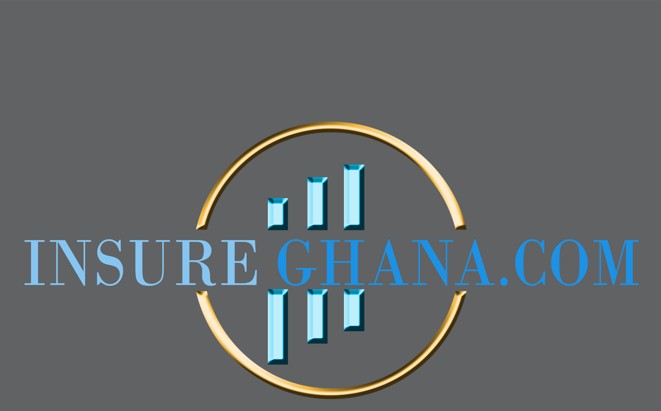Understanding Premium Tax Reforms in Ghana
A breakdown of proposed fiscal measures and their effect on premiums
By Research Team
What’s Changing: Key Tax / Fiscal Reforms
As part of its 2025 fiscal strategy, the Ghanaian government has introduced several tax reforms that directly affect how insurance premiums are taxed. The main ones are:
🌍 Need tailored insurance coverage?. Whether it is marine, motor, or property?. Get a free quote at Safeguard Insurance Brokers.
- VAT on non-life insurance premiums
Under the Value Added Tax (Amendment) Act, 2023 (Act 1107), as of 1 July 2025, a 15% VAT is being applied to premiums for non-life insurance policies.
Affected products include fire, property, marine, travel, personal accident, liability, burglary, and workmen’s compensation insurance among others. - Levies (NHIL, GETFund, COVID-19 Levy, etc.)
These levies already existed and are applied to insurance premiums. Under the new scheme, they are stacked with the VAT. For example: NHIL (2.5%), GETFund (2.5%), and a COVID-19 Levies (1%) apply on premiums. - Exemptions and special treatments
- Motor insurance is explicitly exempt from the new VAT on non-life insurance premiums.
- Life insurance also remains outside the scope of VAT under these reforms.
- The government has made clarifications that VAT effects do not apply to claims (i.e. payouts for losses) since they are considered compensation rather than taxable supplies.
- Budget proposals around abolitions / reversals
In the 2025 Budget, there were proposals to abolish (repeal) VAT on motor-vehicle insurance premiums.
Some of these have been passed or are in process. For example, the government intends to exempt motor insurance from the VAT (again) via legislation. (Ernst & Young Tax News)
How These Measures Affect Premiums: Direct & Indirect Effects
These reforms affect insurance premiums in multiple ways — some immediate and visible, others more indirect. Here are the main effects:
| Type of Premium | Direct Tax Lift | Effective Increase | Who Bears the Cost |
|---|---|---|---|
| Non-life insurance | +15% VAT on policy premium plus existing levies (NHIL, GETFund, COVID-19) on premiums. | Premiums increase by similar percentage (20-25%), albeit exact amount depends on whether insurer passes all cost to policyholders. | Policyholders (businesses, individuals) buying non-life cover. Insurers may try to absorb some cost or reduce benefits, but likely cost passed through. |
| Motor insurance | Exempt from VAT under new rules. Therefore, no direct VAT increase for motor policies. | Premiums for motor insurance likely to be stable with respect to VAT, though levies still apply as before. | Vehicle owners, motor insurers. Relief relative to other non-life lines. |
| Life insurance | Also VAT-exempt; so no VAT cost increase under Act 1107 for life policies. | Premiums for life policies should remain largely unaffected by the VAT component. | Policyholders of life insurance. |
💼 Partner with InsureGhana to grow your insurance business. Learn More
Broader Implications & Risks
Beyond the direct effect of adding a VAT charge, there are secondary impacts and risks to consider:
- Insurance penetration could decline: Ghana already struggles with low insurance uptake. A ~20% increase in premiums for non-life cover may push some potential customers to drop coverage or settle for minimal protection. This is especially true for small businesses and individuals in lower-income brackets.
- Regressive burden for lower-income users: Because levies and VAT are proportional, people who buy lower-value insurance still pay high percentages. Cost increases affect them more in absolute terms relative to income, even if the percent is same.
- Insurers’ administrative burden: Companies must upgrade billing systems, issue invoices showing VAT components, train staff, re-register for VAT if required, etc. These costs may also be passed to policyholders.
- Possible policy redesigns: Insurers may offer fewer add-ons or reduce coverage to keep gross premiums affordable. They might also seek cost-saving in claims or marketing.
- Fiscal trade-offs: While the government expects increased revenue through VAT and levies, reduced demand or increased evasion might limit gains. Also, increased premium taxes may lead to more uninsured exposures, possibly increasing costs for the public sector in disaster relief or liability exposure.
What to Watch & What Insurers / Consumers Can Do
For stakeholders in the insurance sector (insurers, brokers, consumers, regulators), attention to the following is crucial:
- Transparency in pricing
Insurers should clearly show in policy documents how much tax & levies are embedded in premiums. This helps maintain trust, especially when premiums rise sharply. - Product innovation
To cushion the cost increase, insurers may need to design low-coverage/non-add-on products, or bundle services in ways that produce value even with higher premium. Microinsurance or parametric options may become more attractive.
- Consumer education
Many policyholders will be unaware of the reasons behind premium increases. Explaining the VAT/Reform changes helps reduce backlash.
- Regulatory oversight
The National Insurance Commission (NIC) and Ghana Revenue Authority (GRA) need to collaborate to ensure that exemptions (like for motor & life) are enforced properly and that companies comply fairly. - Monitoring market impact
Keeping track of uptake rates and claims experience post‐implementation will help understand how demand shifts, whether some lines shrink or some become uneconomical under the new tax burden.
Conclusion
🟡 Need vehicle insurance? Compare quotes from top insurers. Contact us at. Safeguard Insurance Brokers
Ghana’s premium tax reforms mark a significant shift in how insurance is priced. The introduction of 15% VAT on non-life insurance premiums (stacked on existing levies) will raise the cost of many insurance products by roughly 20-25%, all else equal. Motor and life insurance have been spared this VAT burden, but non-life policyholders must be prepared for higher costs.
If managed well—with clear regulation, robust public education, and product innovation—these reforms can help Ghana mobilize domestic revenue without severely damaging insurance uptake. But there’s a balance to strike: too large a tax burden risks pushing insurance further out of reach for many, undermining the goals not only of revenue generation but economic resilience, risk protection, and financial inclusion.
🌍 Explore reinsurance insights and trends across West Africa at InsureGhana Insights.
Disclaimer: "The views expressed on this site are those of the contributors or columnists, and do not necessarily reflect insureghana's position. insureghana.com will not be responsible or liable for any inaccurate or incorrect statements in the contributions or columns here."

Insight
Expert insights and data-driven analysis from Ghana’s leading insurance knowledge hub

